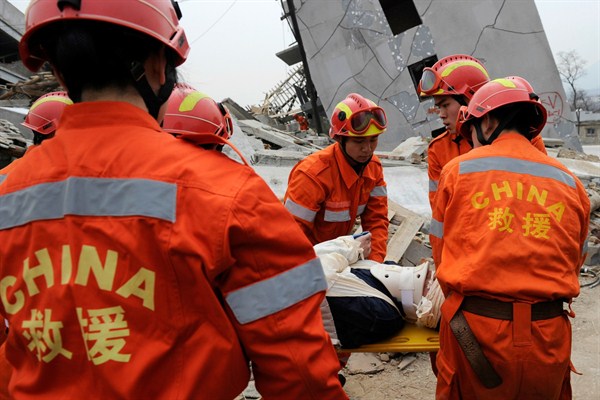For the past decade, China’s involvement in international humanitarian relief has steadily risen as it has sent its people, supplies and support to nations around the world. While these humanitarian efforts have often been framed as a tool of Chinese foreign policy, China has also increasingly integrated itself into the international humanitarian relief system. In an email interview, Miwa Hirono, a Japanese scholar who has written extensively on Chinese humanitarian and peacekeeping operations, explains how Beijing’s approach to disaster relief has evolved and how China continues to balance its policy of noninterference with its desire to provide assistance abroad.
WPR: How big a domestic priority has disaster relief been for the Chinese government, and what progress has been made in recent years? To what degree have perceived shortcomings in disaster relief fueled popular discontent and criticism of the government?
Miwa Hirono: The Chinese government takes disaster relief seriously, both inside and outside of its territory. Inside China, citizens have increased expectations of their government’s ability to handle major disasters. The Beijing Olympics in 2008 contributed to those increased expectations since the Olympics demonstrated the growing logistical capacity of the government. The central role of the government in responding to disasters also derives from Chinese history, because government legitimacy has always been based on how well it can handle relief efforts. China’s response to natural disasters is often discussed in the context of general emergency management, or “yingji guanli,” which also includes management of accidents and terrorism. Altogether, the government is expected to manage all sorts of emergencies across the country, and it has made good progress in establishing mechanisms to do so over the past decade.

